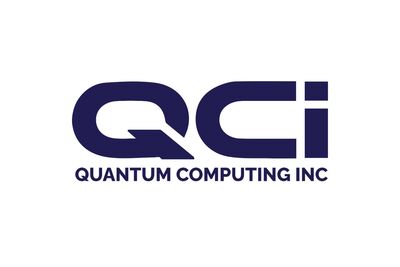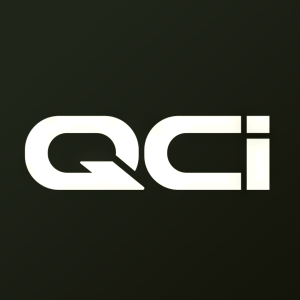Quantum Computing, Inc. Secures Fifth Purchase Order for TFLN Foundry and Previews PDK on a Commercial Platform
Rhea-AI Summary
Quantum Computing Inc. (QUBT) has secured its fifth purchase order for thin film lithium niobate (TFLN) photonic chip foundry services from a Canadian research group focused on quantum photonics. The order includes custom test structures for advanced designs like periodically poled lithium niobate components, with priority access and preferred rates for future multi-project wafer runs.
The company also announced the launch of its PIC Process Design Kit (PDK) on GDSFactory's open-source platform, enabling users to design and simulate circuits before manufacturing. QCi plans to expand PDK availability through additional service providers over the next two years and will showcase it at SPIE Photonics West 2025.
QCi's new U.S.-based chip foundry in Tempe, Arizona, focusing on TFLN-based PICs and nanophotonic devices, is expected to begin operations later this quarter. The company has already secured multiple pre-orders through its Pilot Launch Program, including collaborations with a European technical university and a Canadian PIC design house.
Positive
- Secured fifth purchase order for TFLN foundry services
- New chip foundry in Tempe, Arizona starting operations this quarter
- Multiple pre-orders secured through Pilot Launch Program
- Launch of PIC Process Design Kit on commercial platform
Negative
- None.
News Market Reaction
On the day this news was published, QUBT gained 2.62%, reflecting a moderate positive market reaction.
Data tracked by StockTitan Argus on the day of publication.
As part of the order, QCi will provide the research group with custom test structures based on its TFLN photonic integrated circuit (PIC) chip technology. These test structures will serve as a baseline for advanced designs, such as periodically poled lithium niobate (PPLN) components, which are essential for generating entangled photons and optical frequency conversion. Under this order agreement, the research group will also receive priority access and preferred rates for future multi-project wafer (MPW) runs offered by QCi.
"Through this collaboration, we are excited to advance this research team's pioneering work by providing the use of QCi's TFLN foundry services," stated Dr. William McGann, Chief Executive Officer (CEO) of QCi. "This partnership reinforces the increasing demand for TFLN's energy efficiency and scalability, demonstrating QCi's near-term opportunity to address real-world challenges and highlighting TFLN's transformative potential in the fields of next-generation photonics and quantum technologies."
In addition, the new order aligns with QCi's recent launch of its PIC Process Design Kit (PDK), utilizing GDSFactory's open-source platform. The platform – a powerful Python-based tool widely adopted across commercial and research sectors – allows users to design a variety of complex systems, including photonic circuits. Through this partnership, QCi's PDK will be hosted on GDSFactory, which will provide a unified interface through a cloud-based or local portal. Users who would like to use QCi's foundry services will receive the ability to design and simulate their intended circuits prior to submitting a final blueprint to QCi for manufacturing.
The availability of QCi's PDK will streamline the design and manufacturing process, particularly for its future MPW runs. Over the next two years, QCi plans to make its PDK available through additional service providers, further enhancing accessibility for customers in the photonics market. This week, QCi also plans to introduce its PDK at SPIE Photonics West 2025, the world's largest photonics technologies event, taking place from January 28-30, 2025, in
To date, QCi has secured multiple pre-orders through its Pilot Launch Program, most recently announcing collaborations with a leading European technical university and a Canadian PIC design house. In addition, the Company's new
To learn more about the QCi Foundry or to explore collaboration opportunities with QCi and its foundry services, please visit the QCi Foundry webpage.
About Quantum Computing Inc.
Quantum Computing Inc. (Nasdaq: QUBT) is an innovative, integrated photonics and quantum optics technology company that provides accessible and affordable quantum machines to the world today. QCi's products are designed to operate at room temperature and low power at an affordable cost. The Company's portfolio of core technologies and products offer unique capabilities in the areas of high-performance computing, artificial intelligence, and cybersecurity, as well as remote sensing applications.
For investor relations inquiries, contact John Nesbett at qci@imsinvestorrelations.com, and for public relations inquiries, contact Jessica Tocco at jessica.tocco@a10associates.com.
Forward-Looking Statements
This press release contains forward-looking statements as defined within Section 27A of the Securities Act of 1933, as amended, and Section 21E of the Securities Exchange Act of 1934, as amended. These forward-looking statements and forecasts, generally identified by terms such as "may," "will," "expect," "believe," "anticipate," "estimate," "intends," "goal," "objective," "seek," "attempt," "aim to," or variations of these or similar words, involve risks and uncertainties because they relate to events and depend on circumstances that will occur in the future. Those statements include statements regarding the intent, belief, or current expectations of QCi and members of its management as well as the assumptions on which such statements are based. Prospective investors are cautioned that any such forward-looking statements are not guarantees of future performance and involve risks and uncertainties, including the demand for TFLN chips and the availability and capability of QCi's chip foundry, and that actual results may differ materially from those contemplated by such forward-looking statements. Except as required by federal securities law, QCi undertakes no obligation to update or revise forward-looking statements to reflect changed conditions.
![]() View original content to download multimedia:https://www.prnewswire.com/news-releases/quantum-computing-inc-secures-fifth-purchase-order-for-tfln-foundry-and-previews-pdk-on-a-commercial-platform-302361757.html
View original content to download multimedia:https://www.prnewswire.com/news-releases/quantum-computing-inc-secures-fifth-purchase-order-for-tfln-foundry-and-previews-pdk-on-a-commercial-platform-302361757.html
SOURCE Quantum Computing Inc.








